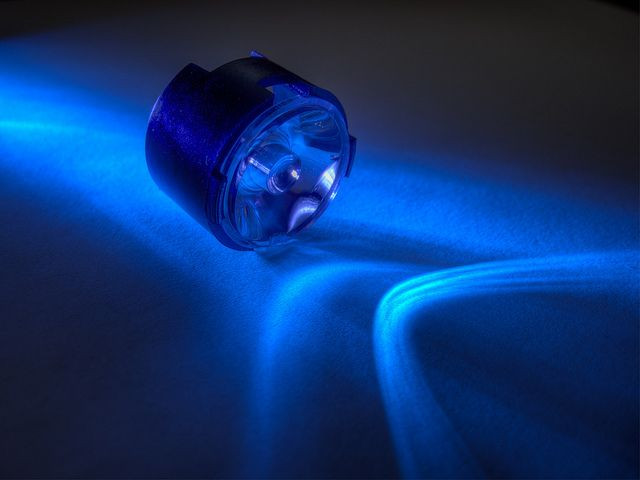Rare Condition Causes Girl's Skin and Eyes to Turn Yellow

A nine-year-old Pennsylvania girl has to spend up to 12 hours a day under UV lights because of an extremely rare liver condition that turns her eyes and skin yellow.
If Brianna Minnich has a sudden change in mood, stress, or even argues with her six-year-old brother, her eyes and skin turn yellow. She needs to sleep under UV lights in order to keep her condition in check. Winters are particularly difficult because of the more limited sunlight.
This is because Minnich has the very rare Crigler-Najjar syndrome, which can sometimes lead to brain damage. At the time of her birth, her father told reporters that she was just the 52nd person in the United States to have the condition. There are only 212 in the world who have been diagnosed with Crigler-Najjar syndrome.
The condition means that she has abnormally high levels of bilirubin, a normal waste product in the blood that is usually broken down by the liver. When she was born, her bilirubin levels were in the high 20s, and the UV rays under which she sleeps keep them at a manageable 10 to 15. The average person has bilirubin levels at around 0.5.
After being diagnosed with the condition at two and a half weeks old, Minnich used a phototherapy blanket until she grew out of it. Phototherapy has helped her a lot, but it will probably affect her eyesight and can lead to gallstones. As a consequence, many people with Crigler-Najjar syndrome must have their gallbladders removed.
Phototherapy's effectiveness has waned as Minnich has grown up. Increasingly her doctors have been forced to up her dosages of phenobarbital, which helps jump start her liver, but leaves her lethargic and depressed. The medication is also a barbiturate, so that will likely have health effects, like bone pain and muscle weakness. Barbiturates are also highly addictive.
Her disorder will likely never go away; experimental gene therapies have been stuck in the testing phase for years due to lack of funds. The only hope that the Minniches would have would be a new liver for Brianna, and her father has been found to be a good candidate to be a donor. But the family is reluctant to perform the surgery because, like all surgeries, they come with risks and she would need to take anti-rejection pills for the rest of her life. The family would need to make a decision before Brianna becomes a teenager.
But the disease has not stopped Brianna from aiming high. She one day hopes to be famous television star, and loves to draw, sing and play guitar.
Published by Medicaldaily.com



























